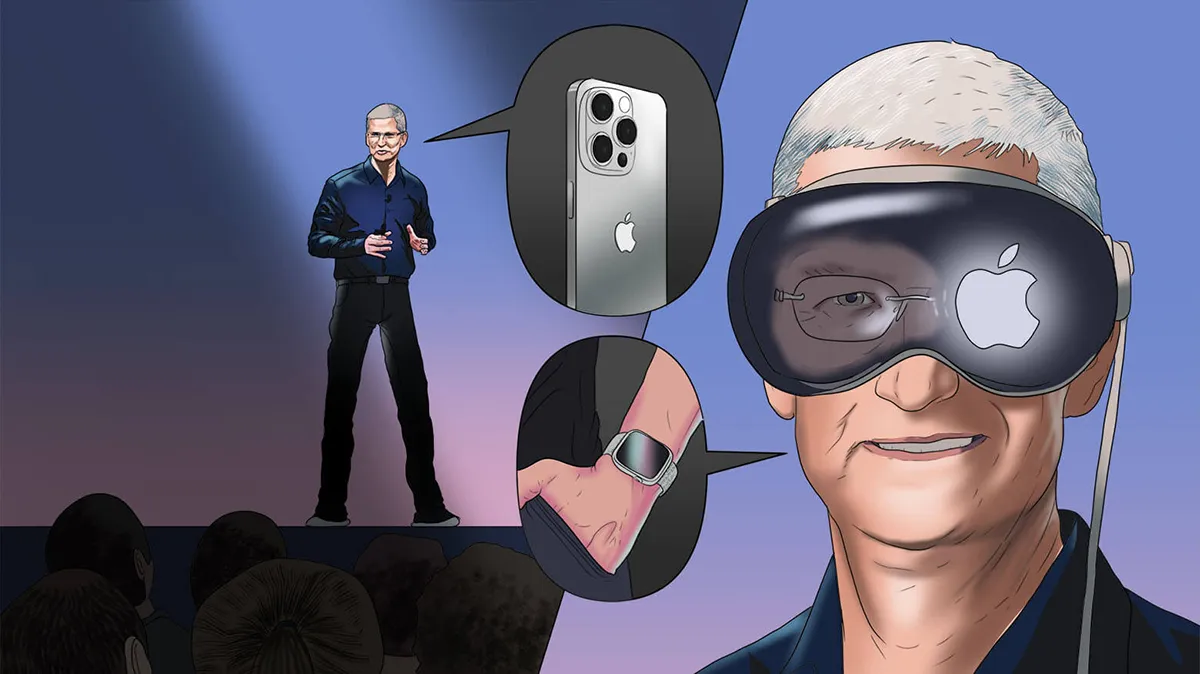Apple is the best storytelling company on the planet. This was the thought that ran through my mind as I watched Apple present its new products at the WWDC conference.
When it introduces a product, Apple doesn’t just spend the time telling you what it will do for you; it directs as much effort to telling a very detailed story about how it made the product. Here is an excerpt from the introduction of the Apple Watch:
Our engineers have custom-designed a new alloy that is 60% stronger than standard alloys but just as light. This requires precision alloying. Raw aluminum of exceptional purity is first heated to a molten state, and tightly controlled amounts of magnesium and zinc are then added…. Next, a finely tuned extrusion process creates a uniform surface free of defects. After being meticulously formed, each case is machined, buffed and then textured with microscopic zirconia beads to achieve a consistent satin finish…”
And that’s just the Apple Watch case! This is a tiny excerpt where Apple tells you a story about how much soul they put into making each little component of their product, explaining the process in technical terms the average human being doesn’t understand
But at the same time giving comfort because the tech-speak is interlaced with over-the-top adjectives that make you feel that only Apple can care so much about creating such incredible products.
In its storytelling, Apple so wants you to fall in love and have an emotional connection with its product that it even names the parts that go into it: Its display is “Retina.” Do you know the name of the display of your Dell laptop? I honestly don’t know if Apple’s display is any better or different than Dell’s; it could be even identical to Dell’s – probably made in the same Sony factory.
But since it has a name, Retina, and Apple spent five minutes talking about the precision with which it’s made, you feel like it’s worlds better than Dell’s XKBS6N display (I made this one up). Apple doesn’t stop with the components that go into its computers. Its keyboard is called “Magic.” Software which only Apple users can use to call each other is called “Facetime,” which is actually a verb now.
I am not mocking Apple; quite the contrary. I want to emphasize the importance of storytelling in the company’s communications. Apple made us fall in love with its gadgets by creating or reimagining new categories of products, then by making incredibly desirable devices, and by being obsessed with quality and ease of use. But it cemented this love through storytelling – an essential element of Apple’s success.
Storytelling is one thing that separates humans from other animals. It is not just important in marketing a product; smart management uses a story to align what it does with the expectations of shareholders. Jeff Bezos used to bring on board shareholders who would align with his vision. Storytelling allowed Amazon to not turn a profit for decades, as it was reinvesting its money into yet to be profitable products.
A story is what provides cohesion among employees and influences corporate culture. If employees are only motivated by their paycheck and free meals to come to work, a competitor that offers a pay bump and better food will win them over. It is more difficult to replace a good story; the employee has already made an emotional investment in it, and there is an emotional sunk cost. A good story embeds itself in our hearts and gives a meaning to our life.
However, just like a joke is only funny when there is a kernel of truth in it, the story must have a foundation based on truth in order to be effective. I can’t stress this point enough. A story can obfuscate the truth for only so long; it will eventually come out. If Apple had told you about the precision of its craftsmanship and your Apple Watch case had rough edges that were cutting your wrist, the story Apple told you would quickly be contradicted.
A powerful, well communicated story that is aligned with one’s identity (be it company, a product or a person) is an incredible tailwind on a journey to success.
Key takeaways
- Apple storytelling is unparalleled in the tech industry, going beyond product features to create detailed narratives about the creation process, fostering an emotional connection with consumers.
- Apple storytelling uses technical jargon interspersed with evocative adjectives, making consumers feel that only Apple can create such exceptional products.
- The company’s storytelling extends to naming components (like “Retina” displays) and features (“FaceTime”), further differentiating Apple products in consumers’ minds.
- Apple storytelling is not just about marketing; it’s an essential element of the company’s success, aligning shareholders’ expectations and fostering a strong corporate culture.
- While Apple storytelling is powerful, you emphasize that its effectiveness stems from being grounded in truth – the actual quality and desirability of Apple products support the narratives they create.









0 comments